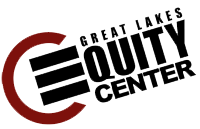Building Multicultural Transitions for Ethnically Diverse Learners With Disabilities
Individuals with disabilities tend to experience fewer successful outcomes in postsecondary transition than do youth without disabilities. Ethnically diverse learners have added challenges, such as worldviews, values, language, family involvement, level of acculturation, expectations, decision-making style, meaning of work, importance of money and social status, and role models that may be dissimilar to the dominant school and work cultures. This article addresses three elements commonly attended to in postsecondary transition for learners with disabilities—their disability types, their preferences, and their strengths—but adds culture as a fourth critical component and explains how cultural considerations can be infused throughout the transition process for ethnically diverse learners with disabilities. The authors offer practical suggestions, including an innovative new program using Latino paraeducators as translators and mentors, to support successful multicultural transitions for ethnically diverse learners with disabilities.

